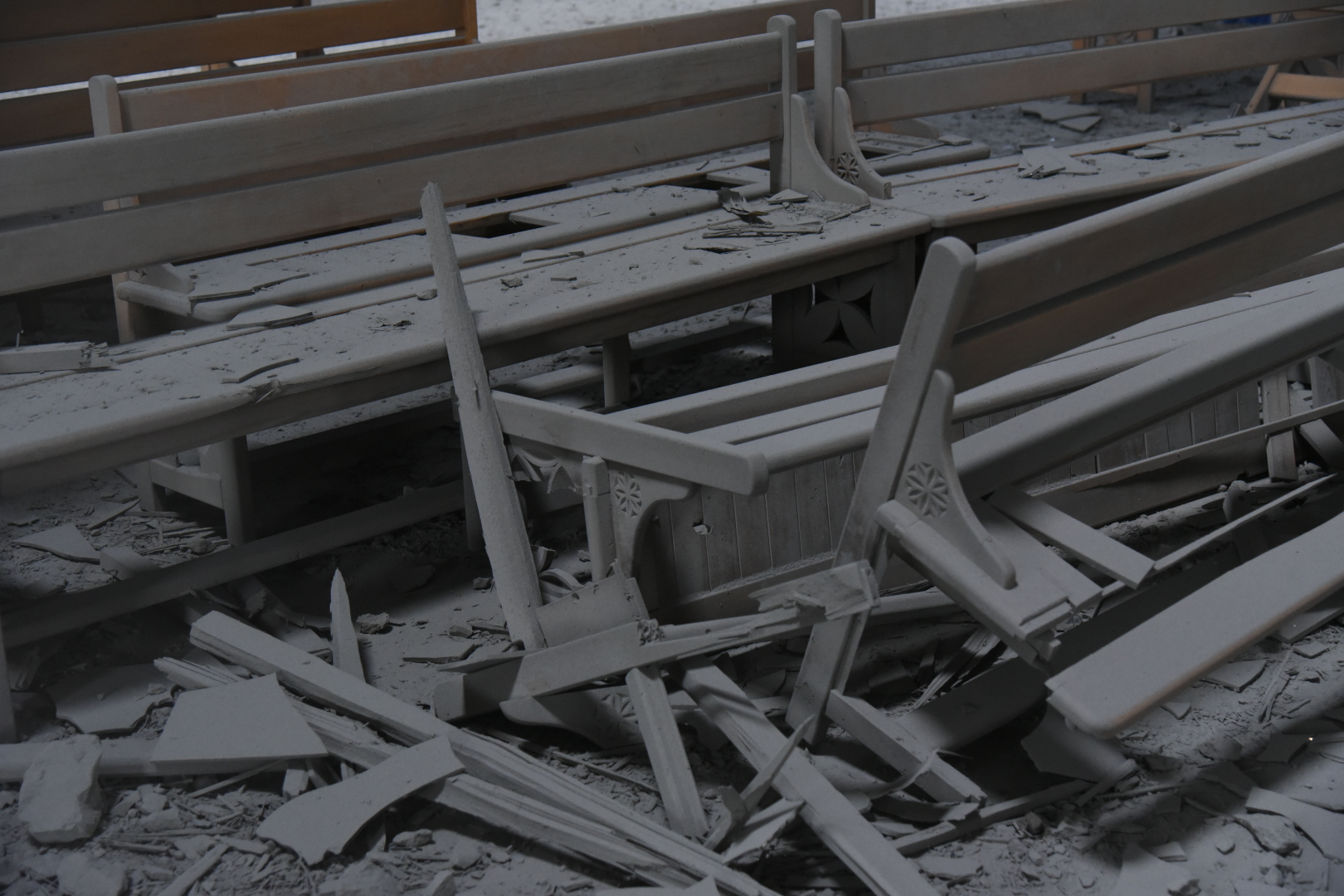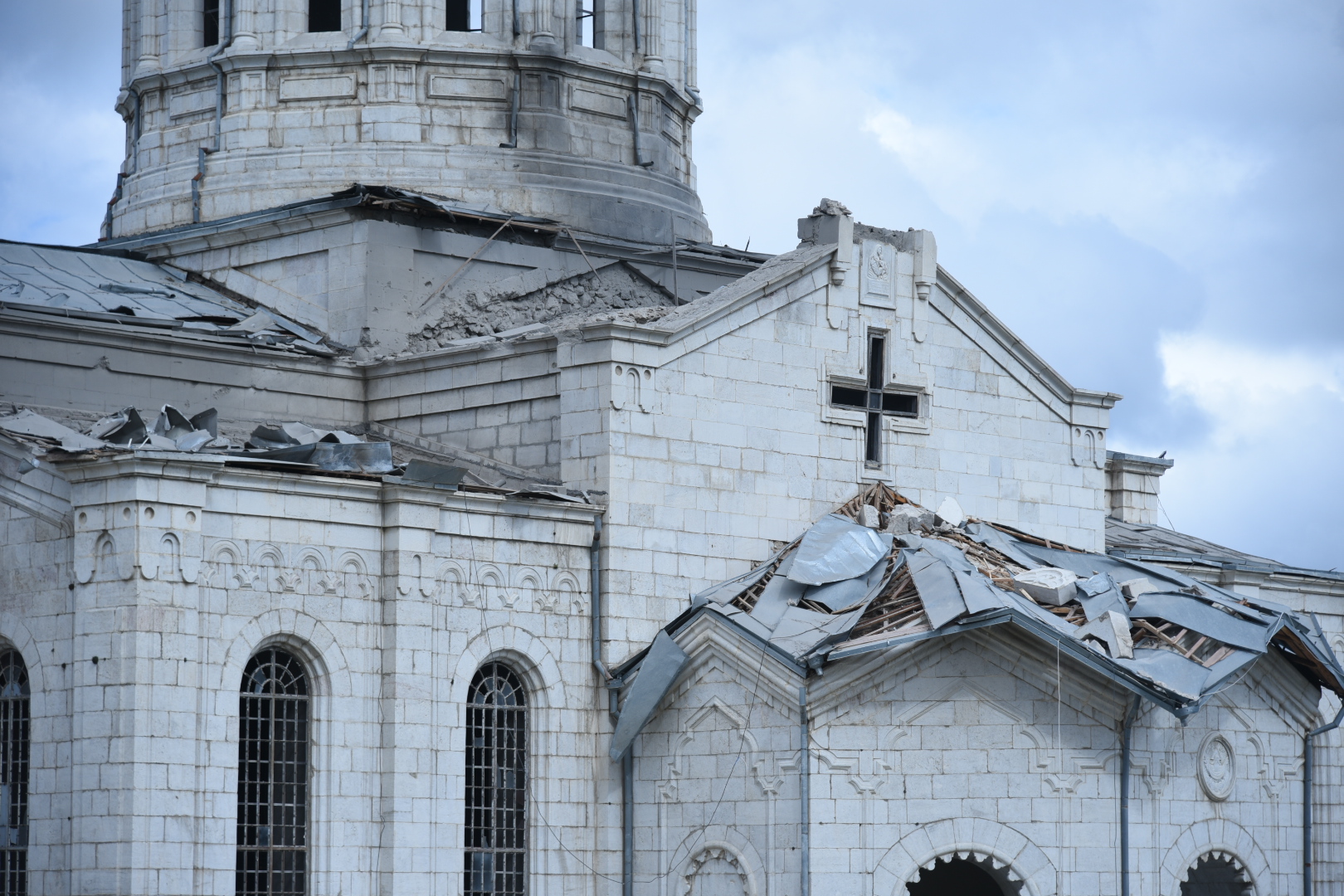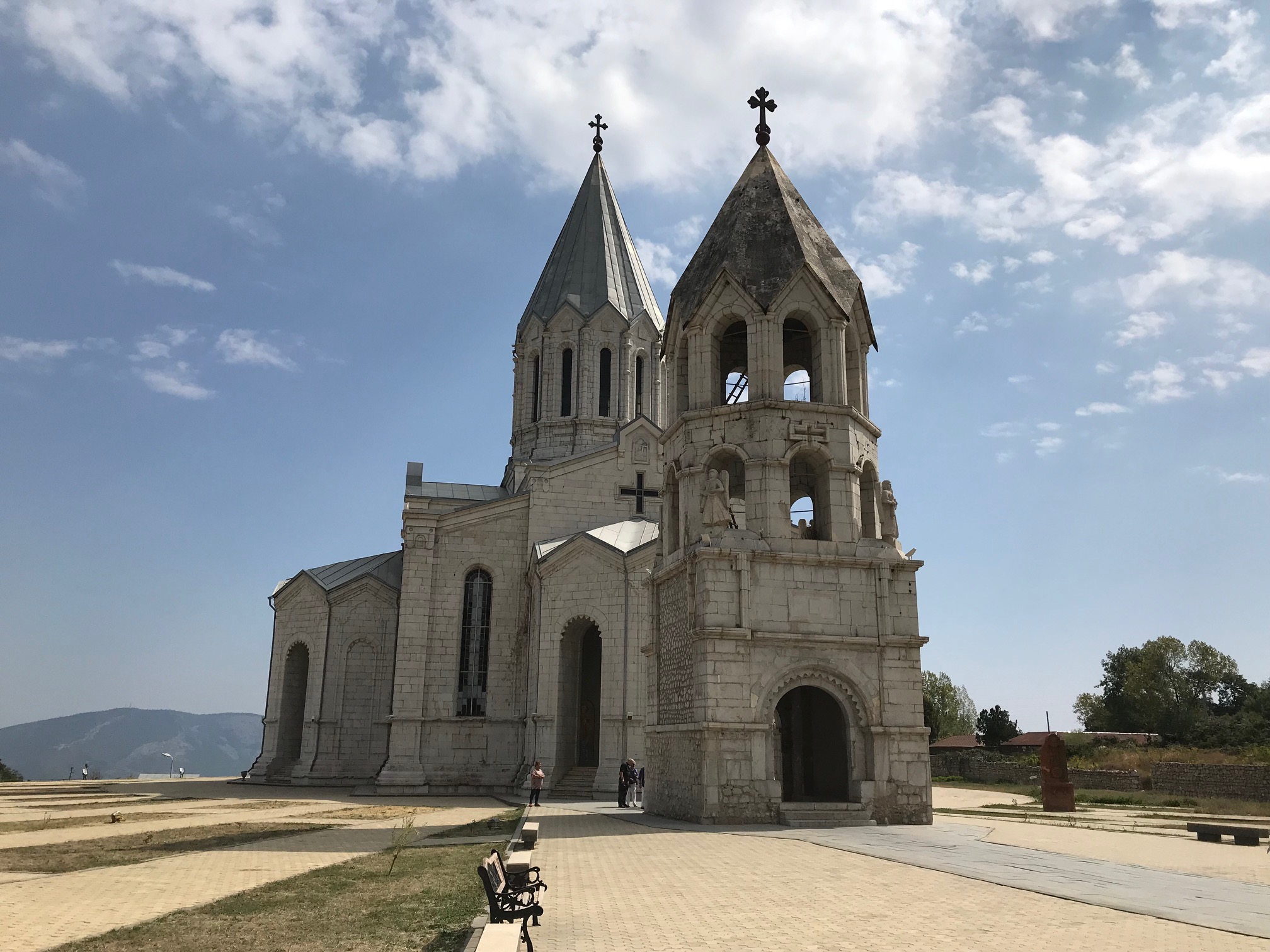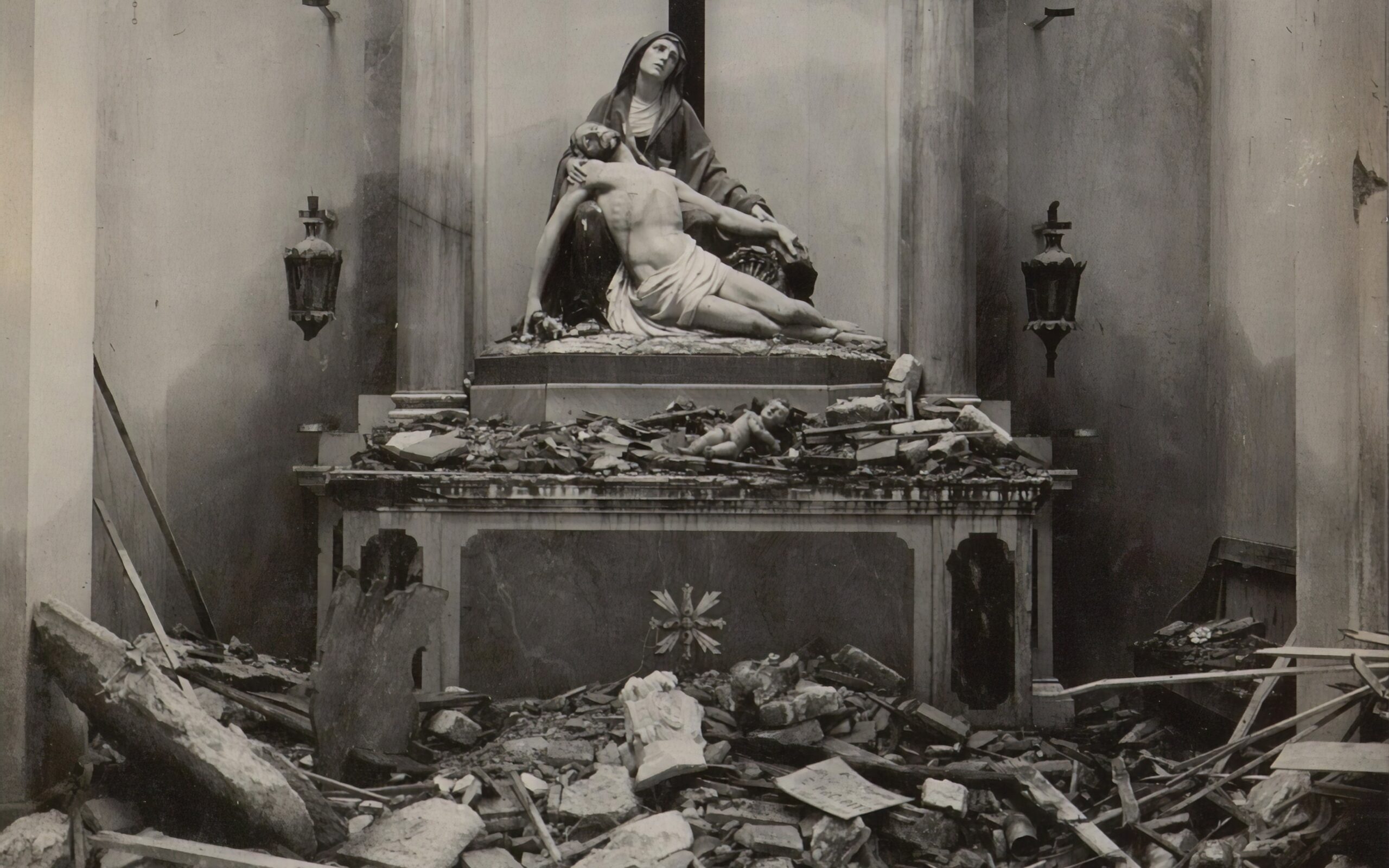20 Armenians Killed in Karabakh including a little girl. Pictures of the Shushi Cathedral bombed by Azerbaijan/Turkey who stand accused of war crimes. Turkey’s membership of NATO questioned.
In Parliament today Baroness Cox challenged the UK Government to consider Turkey’s membership of NATO following allegations that it has aided and abetted war crimes in Nagorno-Karaback

Baroness Cox to ask Her Majesty’s Government what assessment they have made of reports that Shushi Cathedral in Nagorno-Karabakh has been damaged by shelling; what representations they have made to the governments of Azerbaijan and Turkey about the conflict in Nagorno-Karabakh; and what discussions they have had with the government of Turkey about the compatibility of its membership with NATO and its role in the conflict between Armenia and Azerbaijan.
=======================


Report of the Office of the Human Rights Ombudsman of the Republic of Artsakh/Nogorno Karabakh
The Azerbaijani actions aiming at deepening humanitarian disaster in Artsakh, causing 20 casualties, 93 wounded and over 5800 material losses.
Within the framework of the fact-finding mission, launched by the Office of the Human Rights Ombudsman of the Republic of Artsakh, a thorough research and analysis of the cases of criminal encroachments, committed by the Azerbaijani armed forces against the civilian population of Artsakh, for the 27 September – 7 October, 2020, have been conducted. The results are presented below:
As of October 7, a total of 20 civilians have been killed – a little girl, 7 women and 12 men. The child, five women and 4 men were killed in the yard of their houses, the others – in public places of different settlements (central square, residential district). Deaths were recorded in Stepanakert (7 persons), Martuni (6 persons), Hadrut (1 person), Martakert (3 persons), in the village of Alashan (1 person), in the vicinity of the village of Mets Shen of the Martakert region (1 person) and in Aygestan village (1 person).
A total of about 93 people were wounded, of which 73 received serious injuries: 60 males and 13 females.
37 of the wounded were injured in the immediate result of a shell blast at or near their houses, 6 – as a result of targeting and shelling the passenger car while being transported to a relatively safe place, 7 – as a result of targeting the building of the State Emergency Service, which carries out humanitarian functions, and 23 – as a result of targeting other public places.
The injuries mostly involve upper and lower limb and facial fractures, in the form of shrapnel wounds.
Since September 27, the Azerbaijani armed forces have targeted more than 100 civilian settlements in the Republic of Artsakh. As a result, numerous infrastructure, public and private property damages have been recorded. In particular, based on preliminary data, more than 4600 immovable private property (residential houses, shops, etc.), more than 430 cars, about 750 infrastructural, public and industrial facilities were seriously damaged.
On 6-7 October Azerbaijan, using heavy missiles, bombarded civilian infrastructure and residential buildings of Stepanakert, the capital of Artsakh. As a result, on 6 October 4 victims and 10 wounded have been initially recorded among the civilians.
The Ombudsman stresses also that the casualties and injuries have been recorded because of the use by Azerbaijan prohibited weaponry and methods, and in recent days Azerbaijan has started to use heavy and wide-range missiles and aircraft against civilian population, some of which are of cluster munition type.
Moreover, in the last 6 days, in Stepanakert and a number of other populated areas, the Azerbaijani armed forces have deliberately and intentionally targeted vital infrastructure, which is a serious war crime that deepens the humanitarian crisis in Artsakh.
We remind that the data are not final; the Office of the Human Rights Ombudsman continues the fact-finding mission and the results will be updated.
The Ombudsman calls upon the international community to make relevant measures to prevent humanitarian disaster in Artsakh and to provide the population with humanitarian assistance.
===================
Azerbaijan and Turkey stand accused of war crimes and crimes against humanity
Turkey, a NATO country is waging a proxy war and civilians are targeted with heavy artillery, in breach if international humanitarian law and committing war crimes and crimes against humanity The UK Government should press for them to be prosecuted for war crimes and crimes against humanity.
It should also show that it meant what it said in its Declaration, published on August 27th (UK Approach to Protection of Civilians in Armed Conflict) which called for an end to impunity and for perpetrators of war crimes and crimes against humanity to be brought to justice.https://assets.publishing.service.gov.uk/government/uploads/system/uploads/attachment_data/file/32950/ukstrategy-protect-cvilians-arms-conflict.pdf
What the Report Says In Part One, Section 5:
v) Strengthening international justice mechanisms An essential part of protecting civilians in armed conflict is to ensure that there is no impunity for those who commit serious crimes during armed conflict, and that perpetrators are held to account at both a domestic level and at an international level where necessary. The importance of deterrence, with the ultimate threat of prosecution at the International Criminal Court, is playing an increasingly important part in affecting the actions of leaders in armed conflict. The international community needs to ensure that, where serious violations of international humanitarian and human rights law occur, those who bear the greatest responsibility for international crimes, including war crimes and crimes against humanity are prosecuted. We also believe that ensuring justice for such crimes is an integral part of post-conflict reconstruction and reconciliation. The UK is committed to ensure such perpetrators are held to account. We will continue to support the International Criminal Court and ad hoc tribunals to deliver justice through effective and efficient systems, providing practical assistance and co-operation and leadership in management and oversight committees whenever possible. We will encourage states that have not yet done so to ratify the Rome Statute of the International Criminal Court.
Also see:


